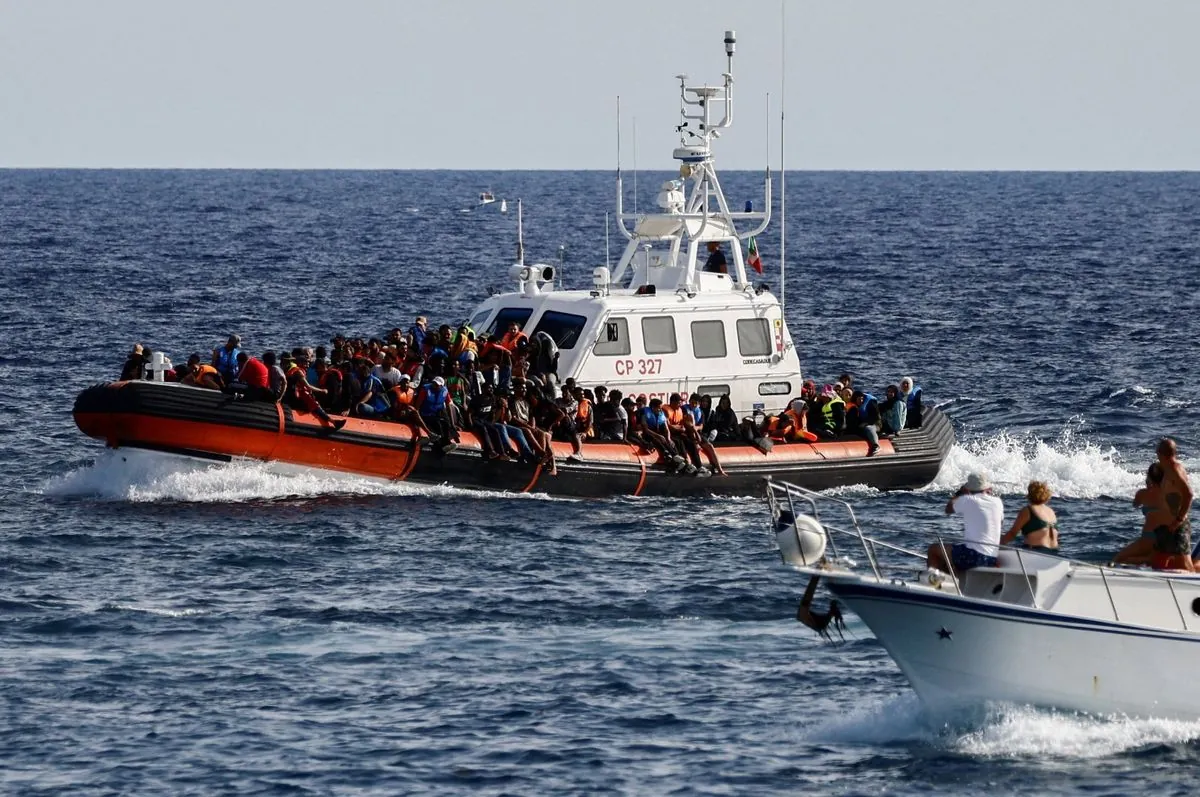Italian Prosecutor Seeks 6-Year Sentence for Salvini Over Migrant Case
Italian prosecutor requests 6-year prison term for Matteo Salvini over 2019 migrant incident. Case highlights ongoing debate on immigration policy and border control in Italy.

In a significant development in Italy's ongoing immigration debate, a prosecutor has requested a six-year prison sentence for Matteo Salvini, the current Deputy Prime Minister and Transport Minister. The case stems from a 2019 incident when Salvini, then serving as Interior Minister, prevented over 100 migrants from disembarking in Italy.
Salvini, leader of the right-wing League party, faces charges of kidnapping for his decision that left migrants stranded at sea. The case is currently in its final stage of a three-tier judicial process, with a senior judge set to make the ultimate ruling.
"I would do it all again: defending borders from illegal immigrants is not a crime."
The case has reignited discussions about Italy's approach to immigration and border control. Giorgia Meloni, the current Prime Minister, expressed solidarity with Salvini, stating that criminalizing efforts to protect national borders sets a concerning precedent.

Italy, with its extensive 7,600-kilometer coastline, has long been a primary entry point for migrants crossing the Mediterranean. The country has grappled with balancing humanitarian concerns and border security, particularly since the peak of the European migrant crisis in 2015.
Meloni's government has implemented stricter immigration policies, including harsher laws and plans to establish migrant reception camps in Albania. Simultaneously, Italy has opened legal pathways for hundreds of thousands of migrants to address labor shortages in various sectors, including agriculture and healthcare.
Recent data from the Interior Ministry indicates a significant decrease in irregular migrant arrivals by sea in 2024, with numbers approximately two-thirds lower than the previous year, totaling 44,675 individuals.
The case against Salvini highlights the complex interplay between national sovereignty, international obligations, and humanitarian considerations. The United Nations High Commissioner for Refugees has previously criticized policies preventing rescue ships from docking, emphasizing the deadly nature of the Central Mediterranean migration route.
As Italy navigates these challenges, the outcome of Salvini's case could have far-reaching implications for future immigration policies and the political landscape of the country.


































